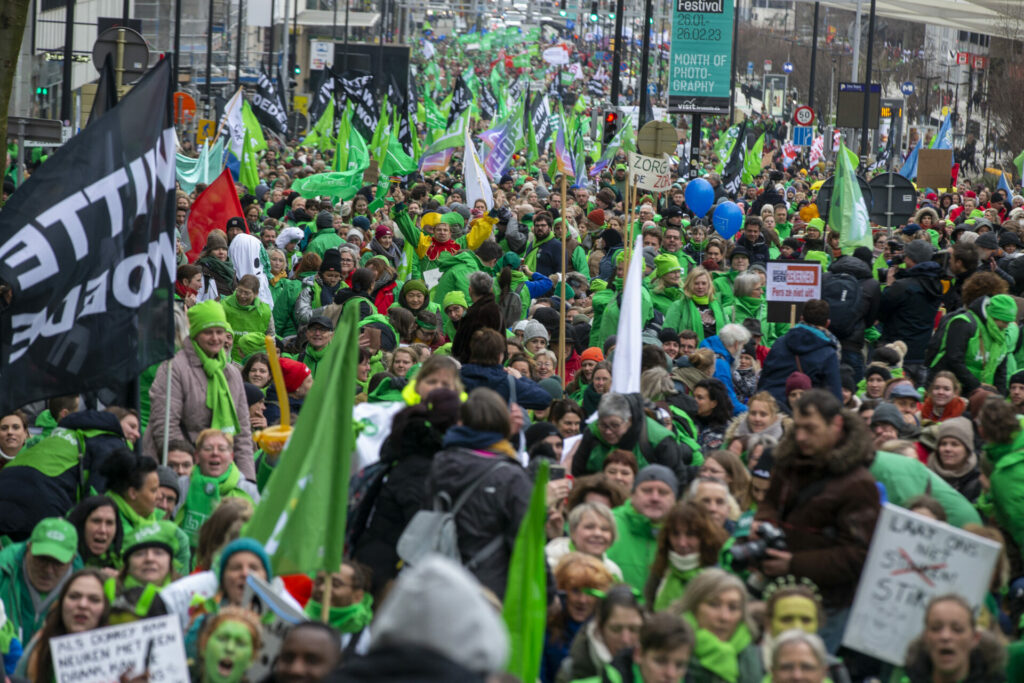Over 18,000 people have taken to the streets in Brussels to denounce the workload and staff shortages in the healthcare, welfare and culture sectors to demand solutions, but also higher wages and better working conditions.
The trade unions held another day of national action in the public sector – which includes hospitals, residential care centres, youth care and childcare – on 16 December, and held another one today (31 January): a demonstration started at the Brussels North station at 10:30 and marched towards the Brussels South/Midi station.
"I came all the way from Dilsen-Stokken (a municipality in Limburg, on the border with the Netherlands) to draw attention to the situation in the childcare sector. Staff shortages, low pay, no decent statute, it cannot go on like this," one of the participants told The Brussels Times.
Untenable situation
"We are drowning in work. It is sad that it had to come this far, but I am glad that there are so many people here," she said. "Such a large group is rather difficult for the authorities to ignore. We have tried our best, now it is up to them."
The various governments of the country must take urgent action against the staff shortages and the seemingly ever-increasing workload, the unions demand.
"We feel the shortages everywhere," said Jan-Piet Bauwens of the socialist BBTK/SETCa sector trade union. "People are presented with new timetables every day. Sometimes they even just receive a text message stating that they have to come to work the day after. That is untenable."
The Brussels-Capital/Ixelles police zone counted about 18,500 participants, the organisation behind the demonstration are speaking of more than 22,000. In any case, the number is a lot higher than the 12,000 that the unions had hoped for.
"Such a turnout was certainly not expected, this is a strong signal," Mark Selleslach, coordinator of the ACV Puls union, told VRT. "The trade unions demand that measures be taken to tackle the workload and staff shortages in the sector. And that cannot wait until there is a new government."
Related News
- National demonstration in Brussels: What disruptions to expect today
- National demonstration in Brussels: Tens of thousands of protesters expected
The demonstrators pointed out that the current situation is a vicious cycle: due to a lack of resources, more people drop out, which increases the workload for their colleagues. As a result, the job is no longer attractive and the vacancies are no longer filled.
"There are currently 7,000 vacancies in the healthcare sector. We are feeling that everywhere and it affects everyone: we all know someone who needs care," they said.
In advance, the Brussels police had warned of traffic disruption in the city centre. The entire route of the demonstration was closed around 10:30, but became accessible again around 13:00 when the march arrived at the Brussels South/Midi train station.

